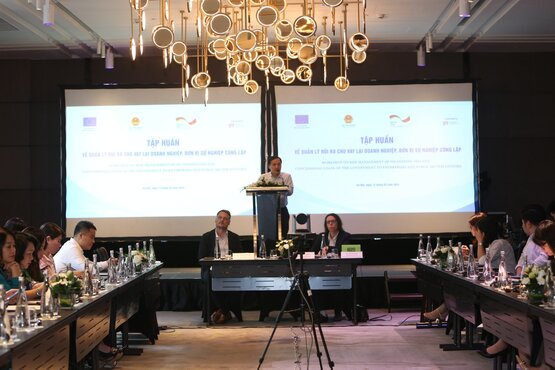On-lending workshop

Vietnam began receiving Official Development Assistance (ODA) in 1993. Since then, this source of funds has played a crucial role in the socio-economic development of the country. Concessionary ODA loans have been invested on infrastructure, poverty reduction, institutional reform, and other government priorities. These loans are used for programs, projects without cost recoverability through budget support method. At the same time, the method of full on-lending and partial on-lending of ODA and concessional loans is applied for programs or projects with full or partial cost recoverability.
Since 2017, the Vietnamese Parliament has passed Law on Public Debt management, which has significantly improved the public debt management process. Many on-lending programs and projects have been effective, innovating, and enhancing the management capacity of business capital. Most of the programs and projects meet their debt obligations. However, some face difficulties, defaulting or accruing overdue debts, which impacts corporate finances, national credit rating, and increases risks to the state budget. In the coming period, as access to preferential ODA funding sources diminishes, Vietnam faces many challenges, prompting the government to better control risks and improve the efficiency of on-lending.
Recognizing these challenges, under the "Strengthening Public Financial Management in Vietnam" project co-funded by the European Union and the German government, GIZ and the Ministry of Finance (MoF) have developed a workshop on risk management of on-lending ODA and concessional loans by the Government to enterprises and public service entities.
This workshop will equip 90 participants from the Department of Debt Management and External Finance with comprehensive information on regulations and the legal framework in risk management of on-lent loans, current status of on-lent loans to enterprises and public service entities, and international experience in risk management of on-lending. Additionally, presentations from duly authorized intermediaries experienced in implementing on-lent loans, along with re-borrowers sharing their challenges, will benefit officials of the Ministry.